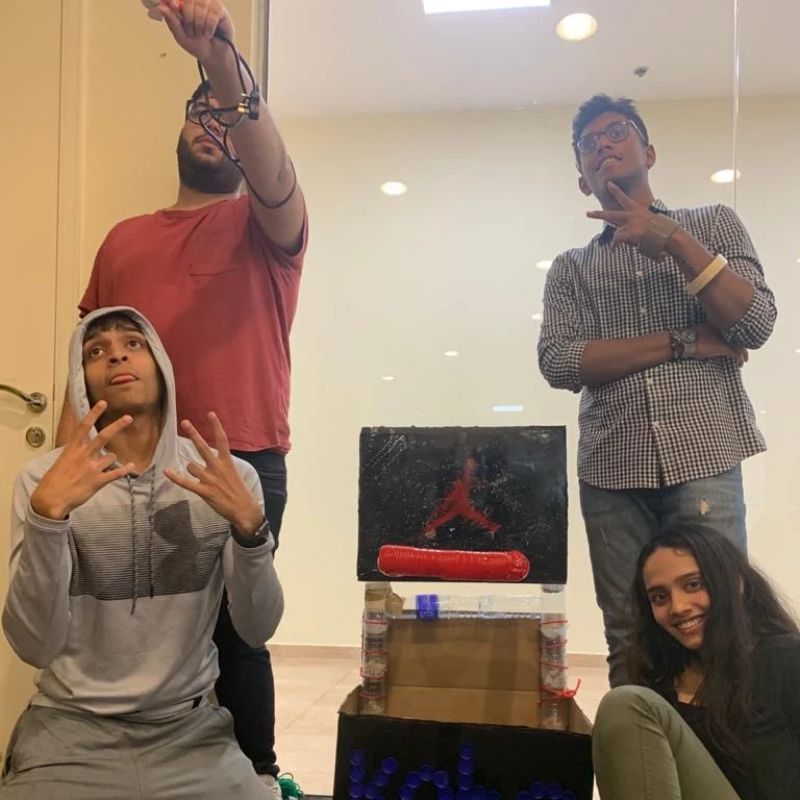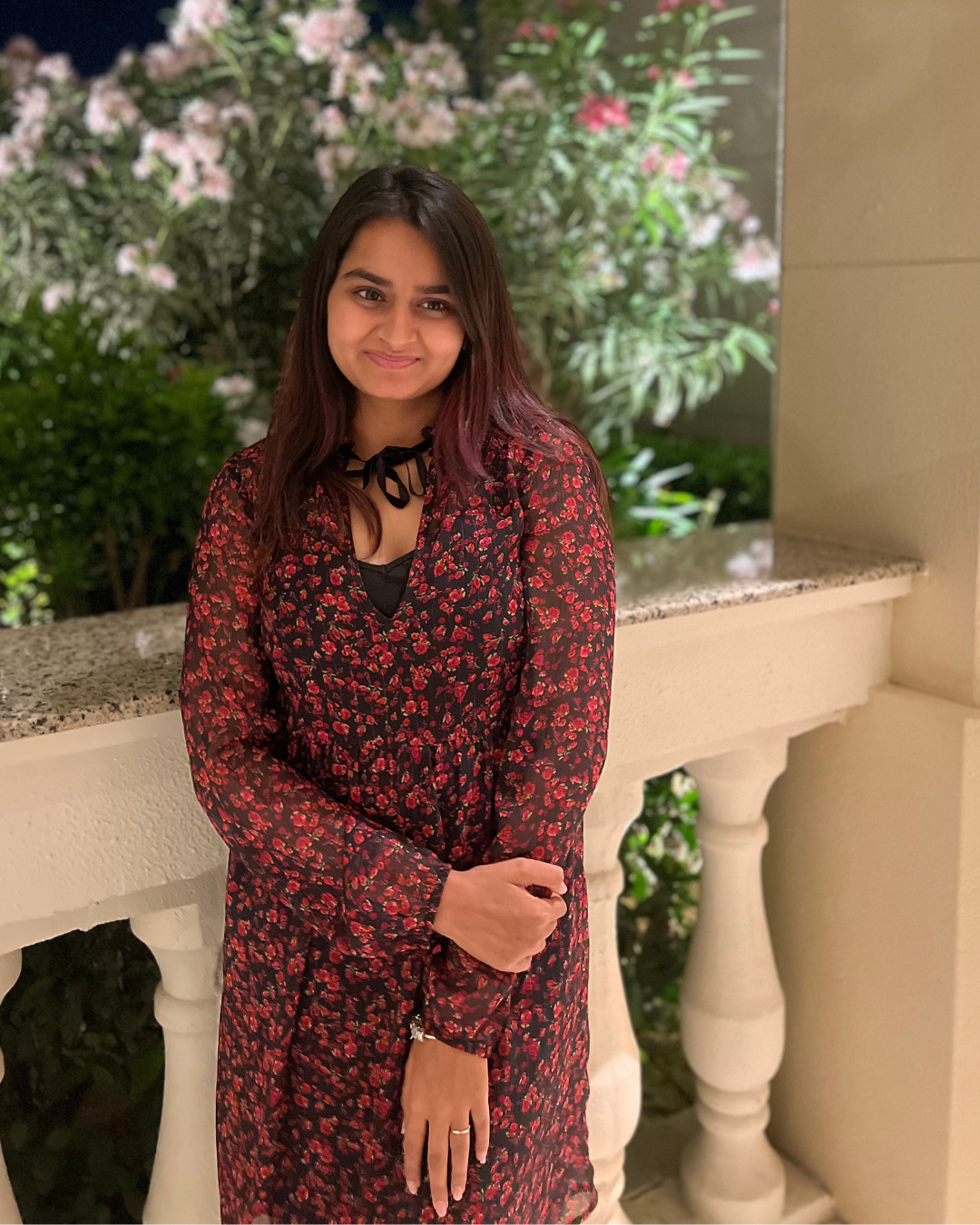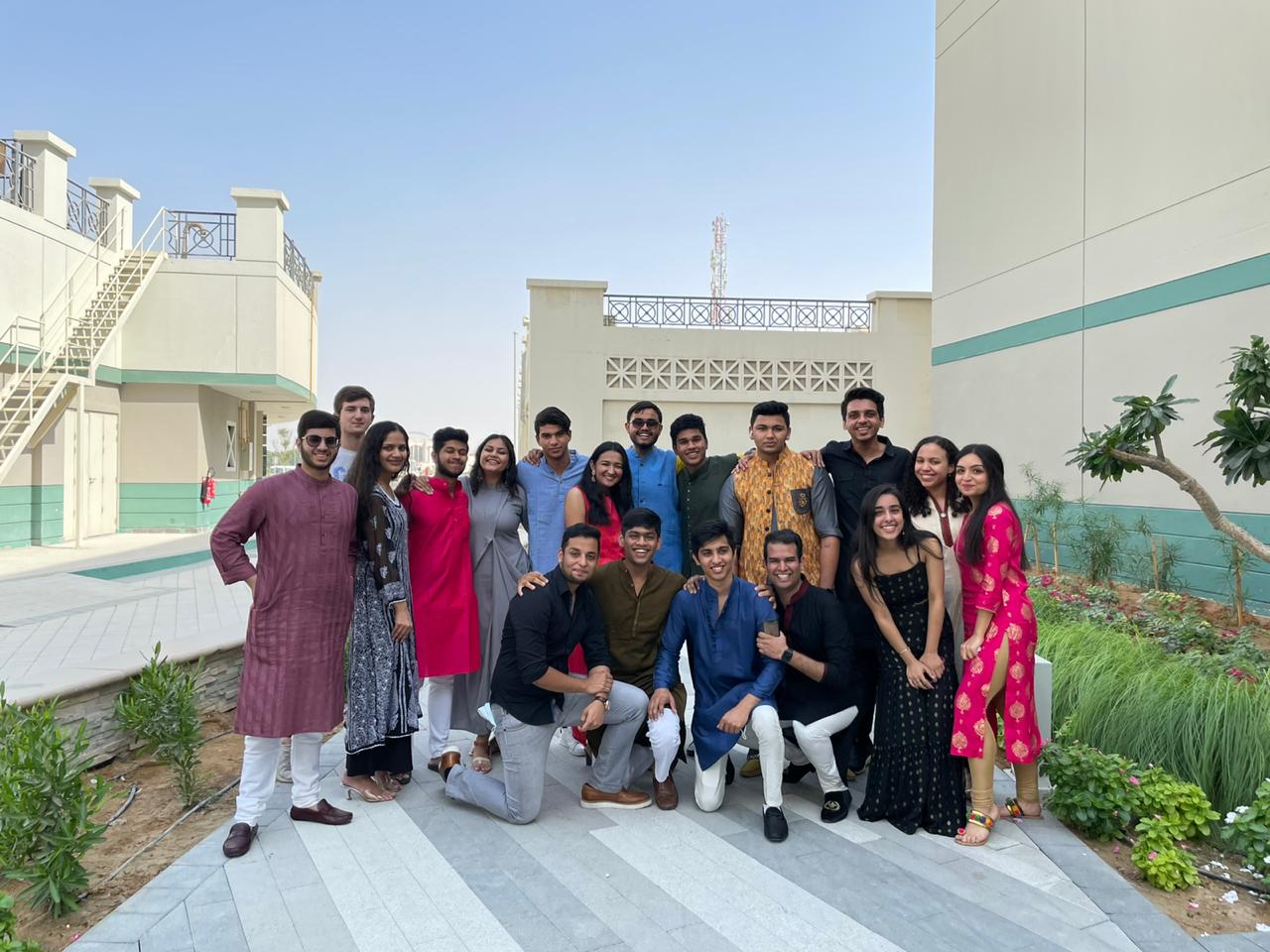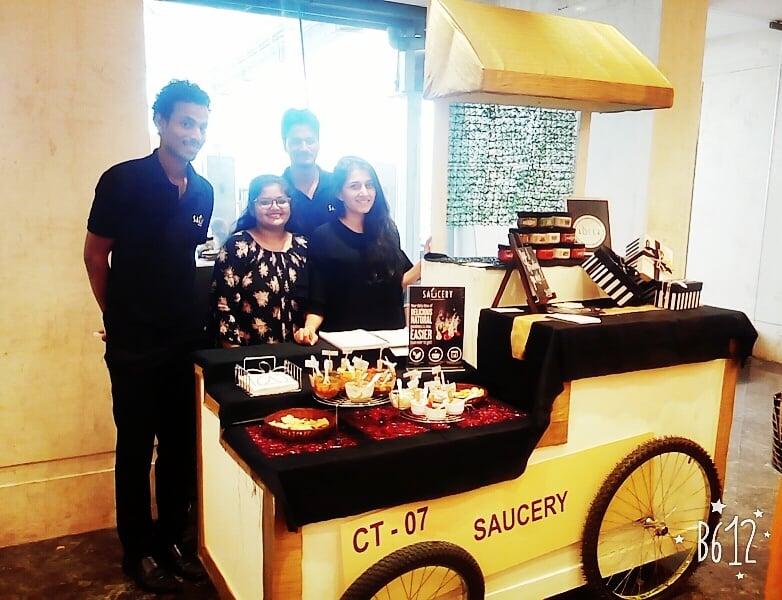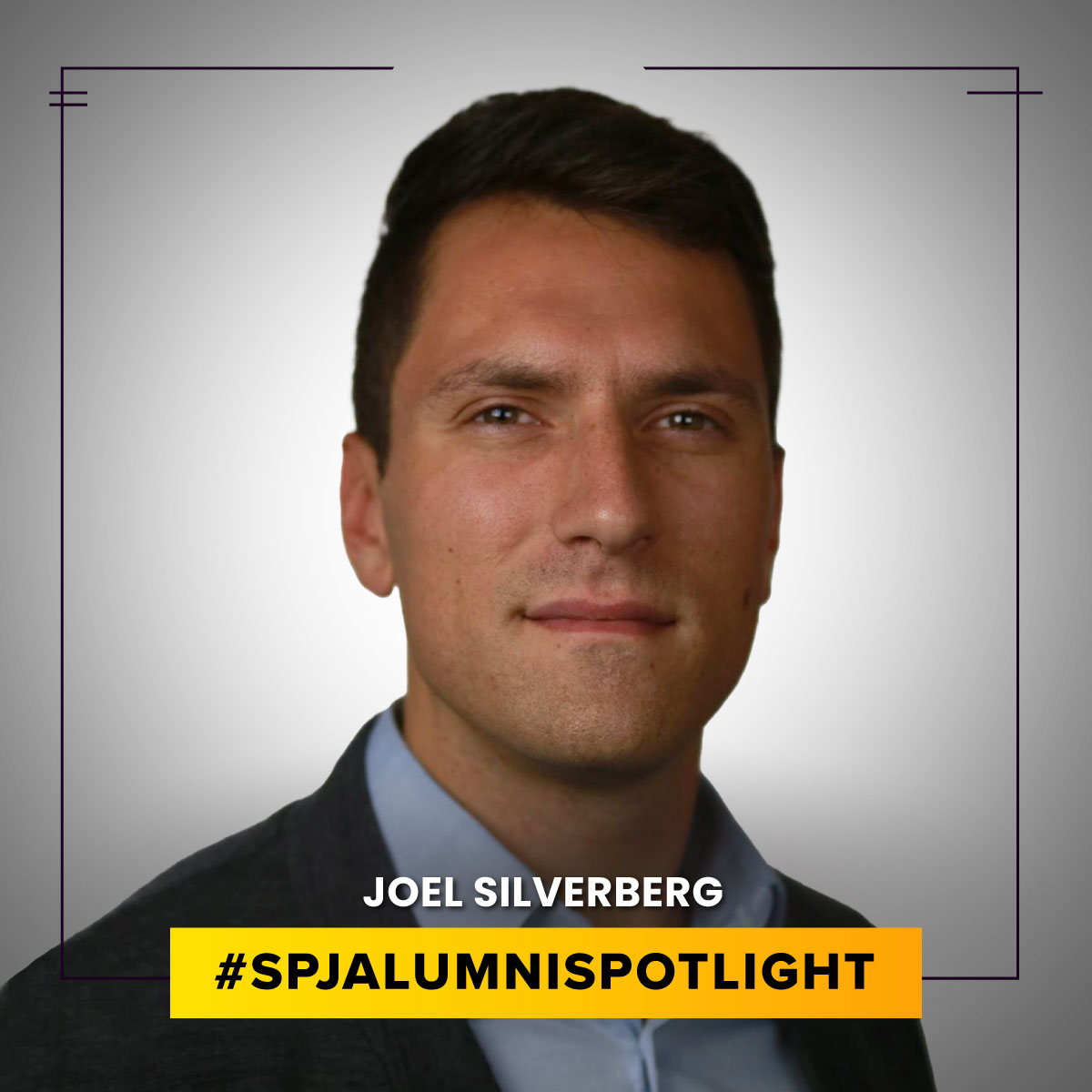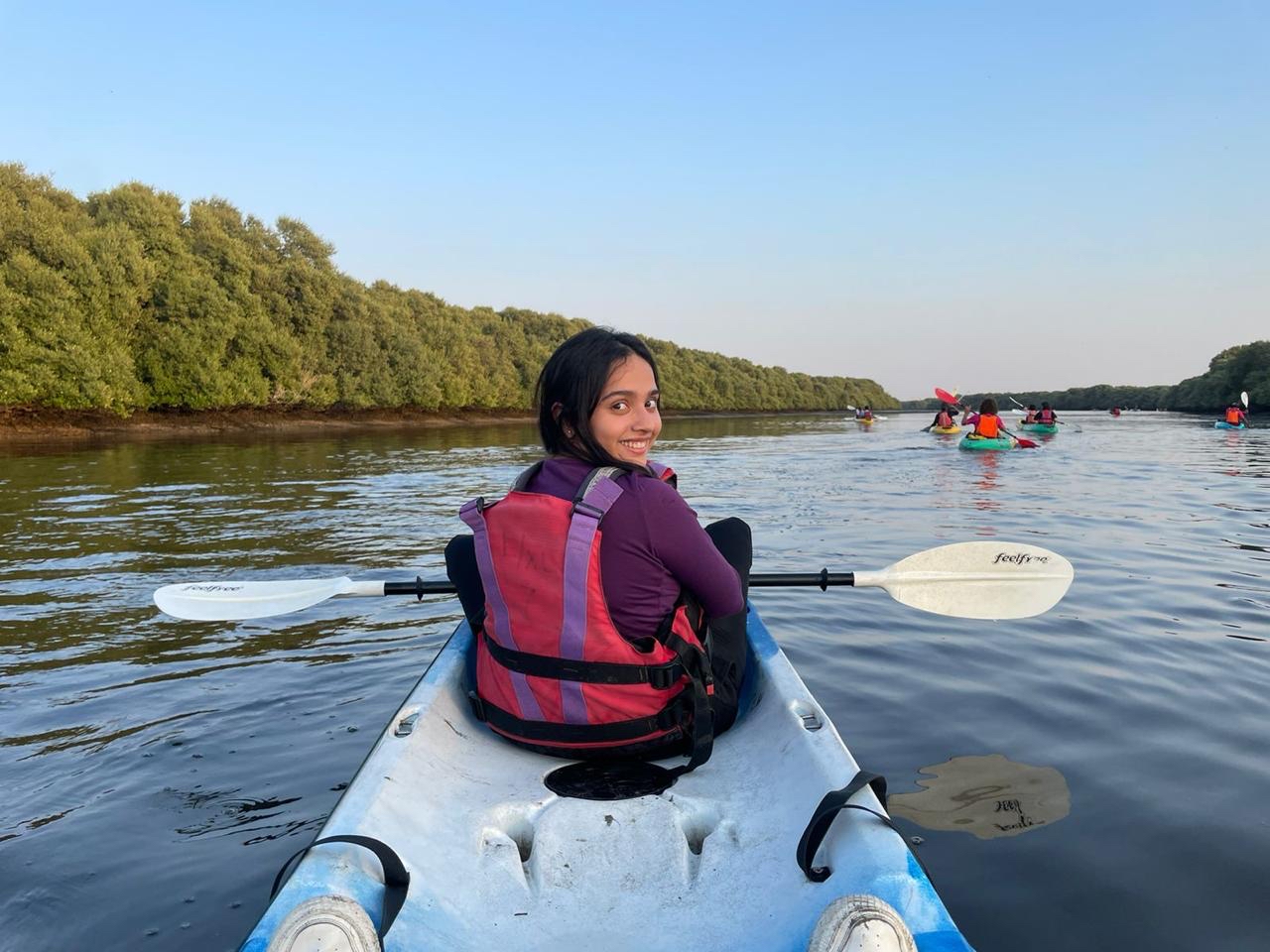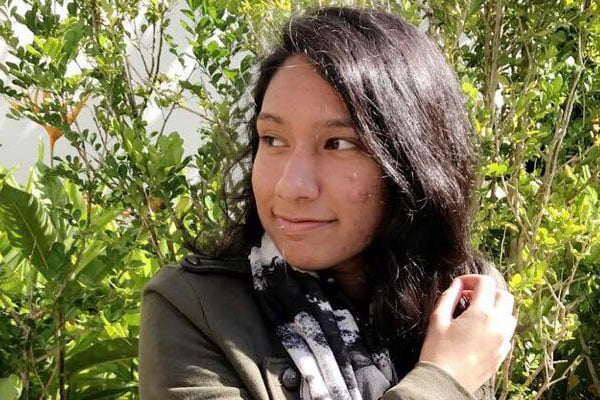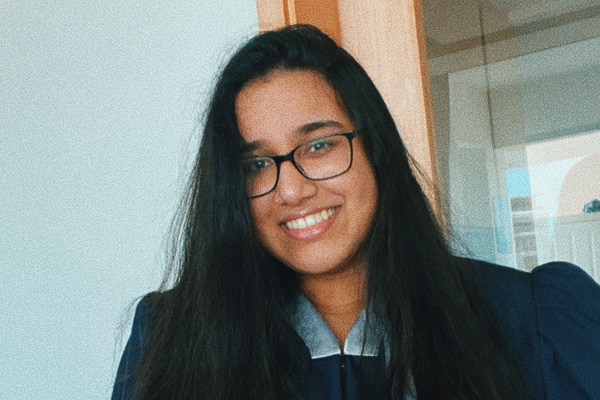An SEO specialist, a published author, a content creator, a podcaster – Pawena Kaniah (BBA 2020) has already been creating a strong impact in the world today. Aligning stereotypes with reality and busting myths, 25-year-old Pawena is a robust and youthful voice that uplifts society courageously.
Being a youthful source of fierce conviction, her ideologies and methods of showcasing them have significantly been intriguing. Let's find out a bit more about Pawena and her incredible journey.

Q. Could you tell us a bit about yourself?
I am currently an SEO Executive at iProspect, Dentsu and have worked in the Sydney Media Industry for two years now. I'm from Mauritius, one of the small islands in the middle of the Indian Ocean. I graduated from SP Jain Global with a Bachelor of Business Administration (BBA) with a major in Marketing, right at the onset of COVID-19. The BBA 16 cohort from SP Jain calls itself the COVID-19 Batch. I like to call us 'Fetchers', as our Yearbook so aptly depicted.
Q. What are some of the things that you're passionate about?
I am a nerdy intellectual with an activist bug for getting things done. I'm convinced I have the preponderant gene in me to make things happen. Books, philosophical debates, a great write-up and connecting with people across various genders, cultures and ages through travels and social events are little things I live for. I'm incredibly passionate about helping small businesses scale up and would not sweat twice in admitting that I love building organisations - whether they are corporate or political, from the grunt up. I suppose Prof Moradian had a hand in facilitating the operations-maniac in me. I find myself to be particularly driven by sharing know-how and knowledge.
Q. What motivated you to take up this passion project alongside your regular work? How has your podcast brought about positive changes?
As much as I would like to say that I cannot live life without multi-tasking/hustling, this existential truth is deep-rooted in my Mauritian spirit of "pay it forward" and African philosophy of "ubuntu," i.e. "I am because we are". There's only so much impact you can create with a 9-5, and I currently have the luxury of having the energy of 1000 bulls. I also had the immense, and I mean it, I'm not saying this for fluff or to sound generic, the honour of meeting Fred Swaniker, one of TIME's 100 Most Influential People and the founder of African Leadership University (ALU), when I was 19. It was a corridor chat I recall, and he articulated something so simple that it stayed with me since, "declare a mission, not a major."
I know that a mission I have declared for life is to influence the nature of policies to be more inclusive and well-thought-out. My book publication, Step-By-Step GP Essays, is an initiative I viewed as a stepping stone to groom a tribe of critical thinkers back home. The Mauritian Taboo Podcast, where I address taboo topics of Mauritian society with young voices, was a continuation of that same mission.
Q. What value does a young voice add to the table?
A 'young' voice surpasses diversity in the age spectrum. That's a very passé argument. A youthful voice will always come with energy and the capacity to sustain improvement actively. I see the presence of a youthful voice at any table to be laden with initiative-taking and a go-getter spirit. You notice I said "youthful" voice and not a "young" voice. That's simply because I know youngsters who are 75-years-old, and oldies who are 23-years-old. Philosophy aside, though a youthful voice creates more youthful voices. It has an amplification and ripple effect both at the same time.
Q. How do you select crucial topics for the podcast? How do you showcase the issue with authenticity?
Staying enthusiastically in touch with grassroots level conversations via social listening is tremendously crucial during content creation. I remember sharing the same with my team at work; Gen Zs see through the fluff. No one gets away with just being nice to this generation. You have to be genuinely kind. Likewise, no content creator will get away with regurgitating processed opinions that are safe and filtered. We live in a "What's on your mind" culture, and with more incredible support from an online community that's increasingly rewarding people for wearing their hearts on their sleeves. Selecting topics is not a concern - it's more about taking the same old-age taboos like eve-teasing or queerness and developing the braveness to ask the hard questions that our parent's generation pressed the skip button on.
Showcasing authenticity is a natural extension of speaking one's highest truth in a way that seeks to harm no one. No content creator can conduct performative activism today. Your content strategy and communications need to be activism, period. I do not believe in a triage of guests based on qualifications, but rather by the experiences they are willing to share as well as the openness of the guest to communicate. In a world that's impoverished in the brave-hearted, triaging would be a 101 mistake for a taboo-related podcast .
Q. Podcast chat shows are a top trend in 2022, and there are over 48 million podcast episodes on the internet today. How do you think one can make their podcast stand out in this content-saturated market?
I'm a Purple Cow marketer and live by Seth Godin's marketing approaches. I don't think that our job as marketers is to make a podcast or product stand out in a content-saturated market. My focus is on making my podcast conversations remarkable enough and for them to attract the audience who resonate with the episodes by virtue of being impacted by the content. Thus any marketer's role is to stand out for a precise, well-defined audience - not for the total market.
Understanding your metrics is also essential. Depending on your podcast goal, it's essential to define whether you are looking for views or conversions for viewers to perform a particular action. Gary Vee's one-liner best exemplifies this: "Content is king, but context is God." The context is the niche audience you choose to impact and set the suitable KPIs for your podcast.
Q. Which of your podcast episodes have been your favourite so far? Where can we catch these episodes?
I would have to say that shooting the episode on Street Harassment was my favourite under the guest's project to create a real-time website that reports instances of street harassment on the island. It's a one-of-a-kind project, and I'm keen to see what unfurls from it. All episodes are currently available on YouTube as the targets are primarily Mauritians. I will eventually upload it to other platforms.
Q. Apart from your corporate job and a successful podcast series, you also recently wrote and published a book in a span of 3 months. Congratulations! Could you tell us a bit about the book?
Step-By-Step GP Essays was born out of a manuscript lying on my laptop drive since my Year 1, Singapore with SP Jain. It's a textbook for argumentative essay-writing for Grade 12 & 13 students competing for Mauritius's Cambridge HSC A-Levels exams. It's a compulsory critical thinking subject for all Mauritians graduating from secondary school. I was good at the subject and have immense gratitude for the outstanding teachers who passed on their know-how to me.
As I was volunteering to provide free tuition classes for students impacted by Covid-19, the dire need for a step-by-step approach that spoke to the teenagers in a fun and bold manner was prominent. The nagging feeling to be unable to contribute more to a larger audience was a trigger to publish the book finally. The entire process would not have been possible without my batch mate Shruti Nair, BBA16 and my junior, Winona Ortega, BBA 17, who were my mental, administrative and technical spines during those three months of designing, producing and printing.
